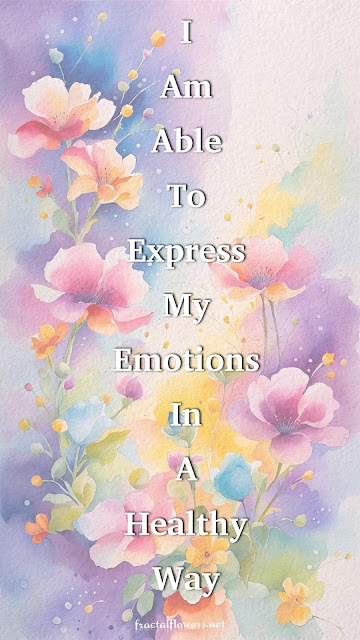In today's fast-paced world, it's easy to get caught up in the chaos and lose sight of our goals and priorities. However, by cultivating focus, self-awareness, and emotional intelligence, we can navigate through life with clarity and purpose. In this article, we will explore the profound impact of focusing on our goals and priorities, and how self-awareness and emotional intelligence play a crucial role in achieving success and fulfillment.
Affirmation: I Am Able to Stay Focused on My Goals and Priorities (Right-Click for loop mode)
Free Affirmation Card (Right Click to Download and Save to Your Device)
The Importance of Goal Setting and Prioritization
Setting clear goals and establishing priorities is the foundation for success. By defining what we want to achieve and identifying the most important tasks, we can direct our energy and resources effectively. This section will delve into the benefits of goal setting, the process of prioritization, and practical strategies for staying focused on our objectives.
Clear, straight, and focused objectives prevent us from drifting aimlessly or losing our focus. Goal setting is important because it serves as a map pointing us to our destination. Prioritization is important because it ensures that we make the best use of our time and helps us reach our destination in the fastest and most efficient manner possible.
The Power of Focus
Focus is the key to unlocking our full potential. When we concentrate our attention and efforts on a specific goal or task, we enhance our productivity, creativity, and problem-solving abilities. This section will explore the science behind focus, techniques to improve concentration, and ways to overcome distractions in our modern digital age.
The Science Behind Focus
Focus is not just a mere concept; it has a scientific basis. Our brains have a limited capacity for attention, and focus is the ability to direct that attention towards a specific task or goal. When we focus, our brain's prefrontal cortex, responsible for decision-making and problem-solving, becomes highly activated. Additionally, the neurotransmitter dopamine plays a crucial role in maintaining focus and motivation. Understanding the science behind focus helps us appreciate its importance and motivates us to improve our concentration skills.
Techniques to Improve Concentration
Improving concentration is a skill that can be developed with practice. One effective technique is to practice mindfulness meditation. Studies have shown that regular meditation can increase attention span and improve cognitive function. Another technique is to break tasks into smaller, manageable chunks. By setting specific goals and focusing on one task at a time, we can reduce overwhelm and enhance concentration. Additionally, incorporating regular exercise, staying hydrated, and getting enough sleep are essential for optimal brain function and concentration.
Overcoming Distractions in the Digital Age
In today's digital age, distractions are abundant, making it challenging to maintain focus. However, there are strategies to overcome these distractions. One approach is to create a distraction-free environment. Turn off notifications on your phone or computer, and designate specific times for checking emails or social media. Additionally, practicing time management techniques, such as the Pomodoro Technique, can help improve focus. This technique involves working in focused bursts of 25 minutes, followed by short breaks. By consciously managing distractions and implementing effective strategies, we can navigate the digital age and improve our concentration skills.
Cultivating Self-Awareness
Self-awareness is the cornerstone of personal growth and development. By understanding our strengths, weaknesses, values, and emotions, we gain valuable insights into ourselves and our interactions with others. This section will delve into the importance of self-awareness, methods to enhance self-reflection, and the benefits of seeking feedback from trusted sources.
The Importance of Self-Awareness for Goals
Self-awareness is a fundamental aspect of personal growth and achieving goals. Without a clear understanding of our strengths, weaknesses, values, and motivations, it becomes challenging to set meaningful and realistic goals. Self-awareness allows us to align our goals with our true desires and capabilities, increasing the likelihood of success. By knowing ourselves better, we can identify potential obstacles, develop effective strategies, and make necessary adjustments along the way. Self-awareness also helps us stay focused and motivated, as we have a deeper understanding of why we are pursuing specific goals.
Methods to Enhance Self-Reflection
Self-reflection is a powerful tool for enhancing self-awareness. One method to facilitate self-reflection is journaling. By regularly writing down our thoughts, feelings, and experiences, we can gain insights into our patterns, beliefs, and behaviors. Another effective method is meditation or mindfulness practices. These techniques allow us to observe our thoughts and emotions without judgment, enabling us to gain clarity and perspective. Seeking feedback from others, engaging in introspective exercises, and engaging in self-assessment tools are additional methods that can enhance self-reflection and deepen our self-awareness.
Benefits of Seeking Feedback from Those You Trust
Seeking feedback from trusted individuals is invaluable for personal and professional growth. Constructive feedback provides us with an outside perspective, highlighting blind spots and areas for improvement that we may not be aware of. It helps us gain a more accurate understanding of our strengths and weaknesses, allowing us to make informed decisions and set realistic goals. Feedback also provides an opportunity for learning and development, as it can offer insights, suggestions, and alternative viewpoints that we may not have considered. By seeking feedback from those we trust, we can foster self-awareness, enhance our performance, and build stronger relationships based on open communication and mutual support.
Emotional Intelligence: The Key to Success
Emotional intelligence (EQ) is the ability to recognize, understand, and manage our own emotions, as well as the emotions of others. It plays a vital role in building strong relationships, effective communication, and making sound decisions. This section will explore the five components of emotional intelligence, practical ways to develop EQ, and its impact on achieving personal and professional goals.
The Five Components of Emotional Intelligence
Emotional intelligence (EQ) refers to the ability to recognize, understand, and manage our own emotions, as well as the emotions of others. There are five key components of EQ. The first is self-awareness, which involves recognizing and understanding our own emotions and how they impact our thoughts and behaviors. The second is self-regulation, which is the ability to control and manage our emotions, impulses, and reactions. The third component is motivation, which refers to our ability to harness our emotions to drive us towards our goals. The fourth is empathy, which involves understanding and relating to the emotions and experiences of others. Lastly, social skills are essential for building and maintaining positive relationships, as well as effectively communicating and collaborating with others.
Practical Ways to Develop EQ
Developing emotional intelligence is a lifelong journey, but there are practical ways to enhance these skills. First, self-reflection is crucial. Take time to reflect on your emotions, triggers, and patterns of behavior. Journaling or keeping a reflective diary can be helpful in this process.
Second, practice mindfulness and self-regulation techniques, such as deep breathing exercises or meditation, to become more aware of your emotions and learn how to manage them effectively.
Third, seek feedback from others and actively listen to their perspectives. This helps develop empathy and improves your ability to understand and connect with others.
Last, focus on building strong social skills by actively engaging in conversations, practicing active listening, and seeking opportunities for collaboration and teamwork.
EQ's Impact on Achieving Personal and Professional Goals
Emotional intelligence plays a significant role in achieving personal and professional goals. By developing self-awareness, you can align your goals with your values, strengths, and passions, increasing your motivation and commitment. Self-regulation helps you manage setbacks and challenges along the way, allowing you to stay focused and resilient.
Empathy and social skills enable you to build strong relationships and effectively communicate with others, fostering collaboration and support. Additionally, emotional intelligence enhances your ability to adapt to change, solve problems, and make sound decisions. Overall, EQ is a critical factor in achieving success and fulfillment in both personal and professional spheres.
Integrating Focus, Self-Awareness, and Emotional Intelligence
Bringing together the power of focus, self-awareness, and emotional intelligence can have a remarkable impact on achieving professional and personal goals. First, focus is essential in directing our attention and energy towards our desired outcomes. By honing our ability to concentrate on specific tasks and priorities, we can eliminate distractions and make progress toward our goals more efficiently. When combined with self-awareness, which involves understanding our strengths, weaknesses, and values, we can align our focus with what truly matters to us. This alignment allows us to work towards goals that are meaningful and fulfilling, increasing our motivation and drive.
Emotional intelligence further enhances this process by providing us with the tools to navigate our emotions and the emotions of others. By being aware of our own emotions and how they impact our thoughts and behaviors, we can better regulate our reactions and make more informed decisions. This self-regulation allows us to stay focused and composed, even in challenging situations. Additionally, emotional intelligence enables us to understand and empathize with others, fostering stronger relationships and effective collaboration. By leveraging emotional intelligence, we can build a support network and gain valuable insights from others, which can propel us towards our goals.
The combination of focus, self-awareness, and emotional intelligence creates a powerful synergy that can lead to remarkable achievements. When we are focused on our goals, self-awareness helps us understand our strengths and areas for growth, allowing us to make strategic choices and leverage our strengths effectively. Emotional intelligence enables us to navigate the complexities of relationships and effectively communicate our needs and aspirations. This combination not only enhances our personal growth but also opens doors for professional opportunities. By developing these three components, we can unlock our full potential and achieve remarkable success in both our personal and professional lives.
Conclusion
In a world filled with distractions and competing demands, focusing on our goals and priorities while cultivating self-awareness and emotional intelligence is paramount. By harnessing the power of focus, we can achieve remarkable results and lead a purpose-driven life. Through self-awareness, we gain valuable insights into ourselves and our relationships, enabling personal growth and success. Emotional intelligence empowers us to navigate the complexities of human interactions with empathy and understanding. By integrating these elements, we can unlock our full potential and create a fulfilling and meaningful existence. Remember, the journey toward achieving goals, self-awareness, and emotional intelligence is ongoing, but the rewards are immeasurable.



































